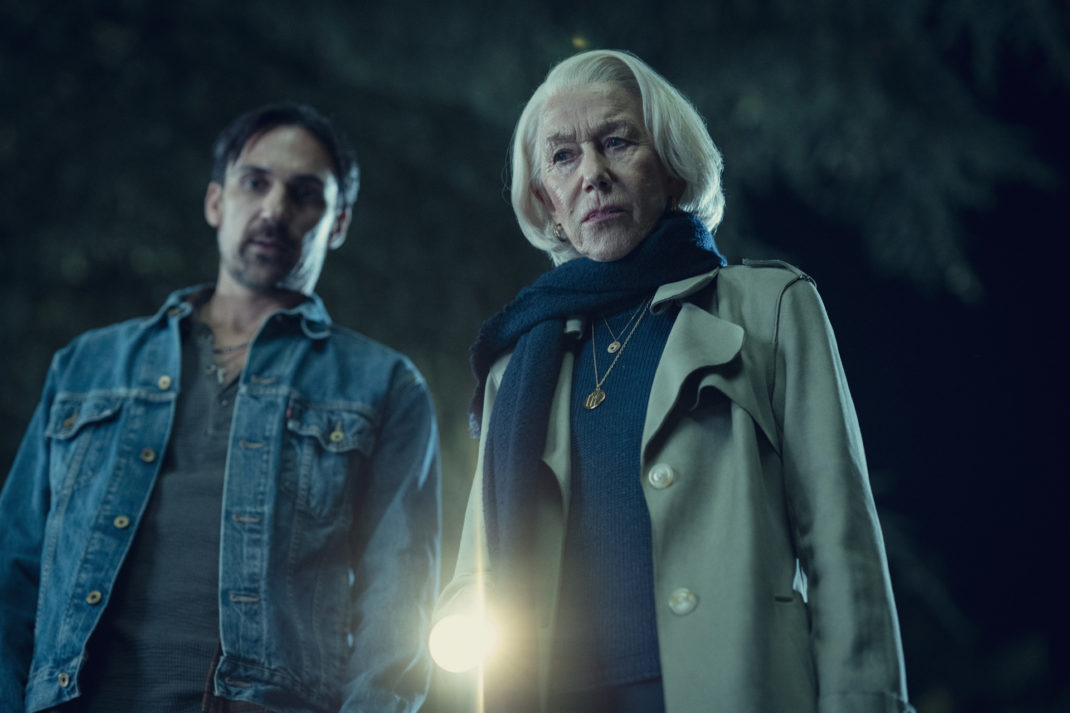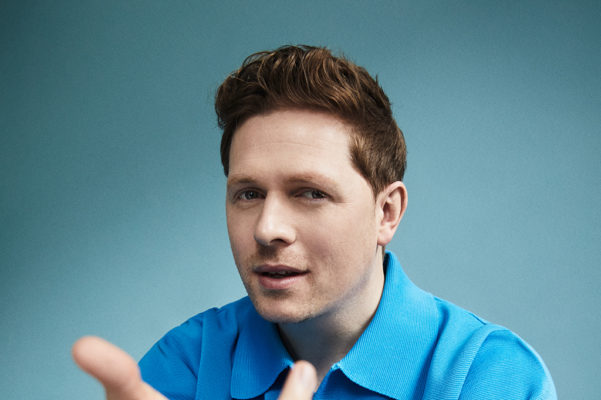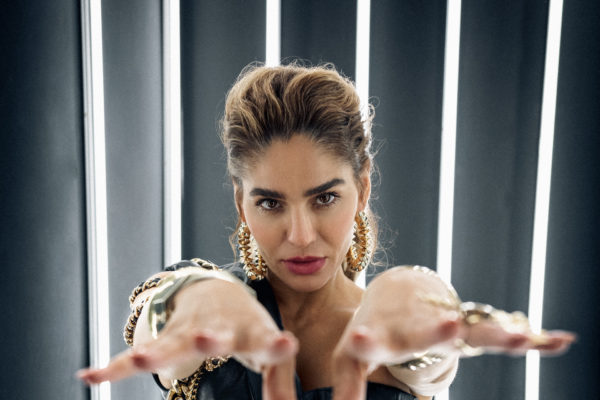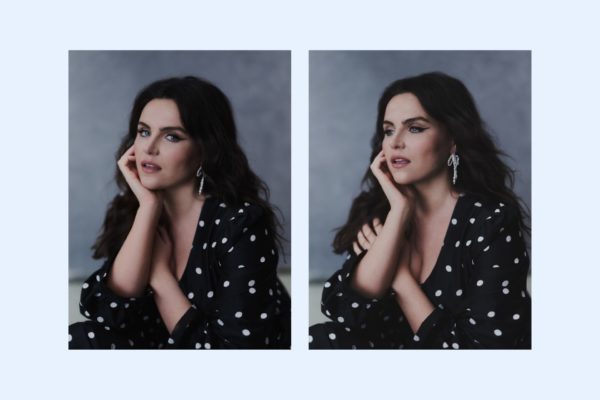‘I Don’t Think Anybody’s Going To Say That It’s Satisfying’: Dame Harriet Walter On The Succession Finale – Interview
By
2 years ago
Harriet can currently be seen in Succession, Ted Lasso and Silo
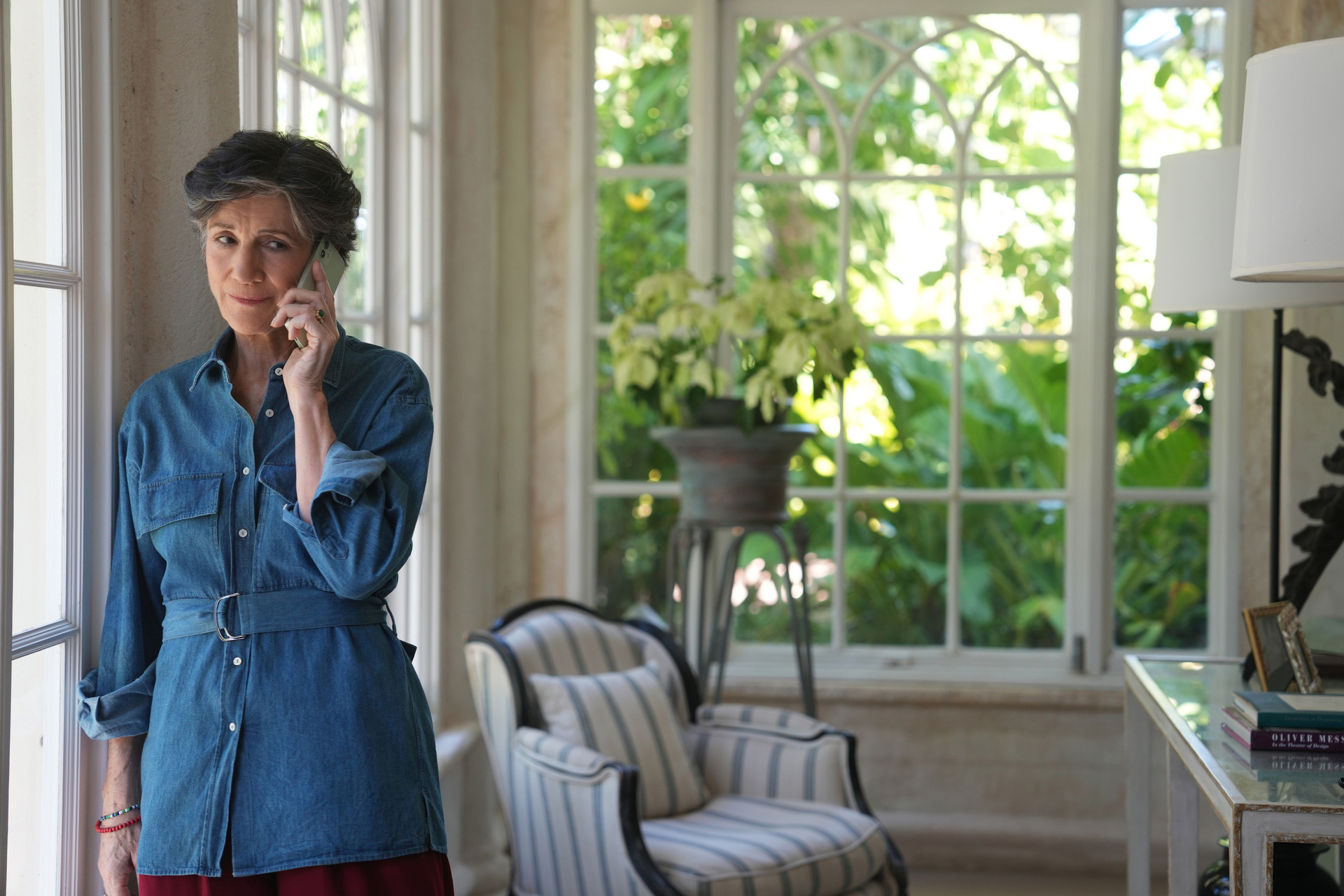
Succession, Silo, Ted Lasso: Dame Harriet Walter stars in three of the buzziest series on TV right now, encapsulating her career habit of appearing in agenda setting productions, from Downton Abbey to Killing Eve to This Is Going To Hurt. We sat down with Harriet ahead of the Succession finale to catch up on these three projects, and finding balance in life amongst it all.
Interview: Dame Harriet Walter On The Succession Finale
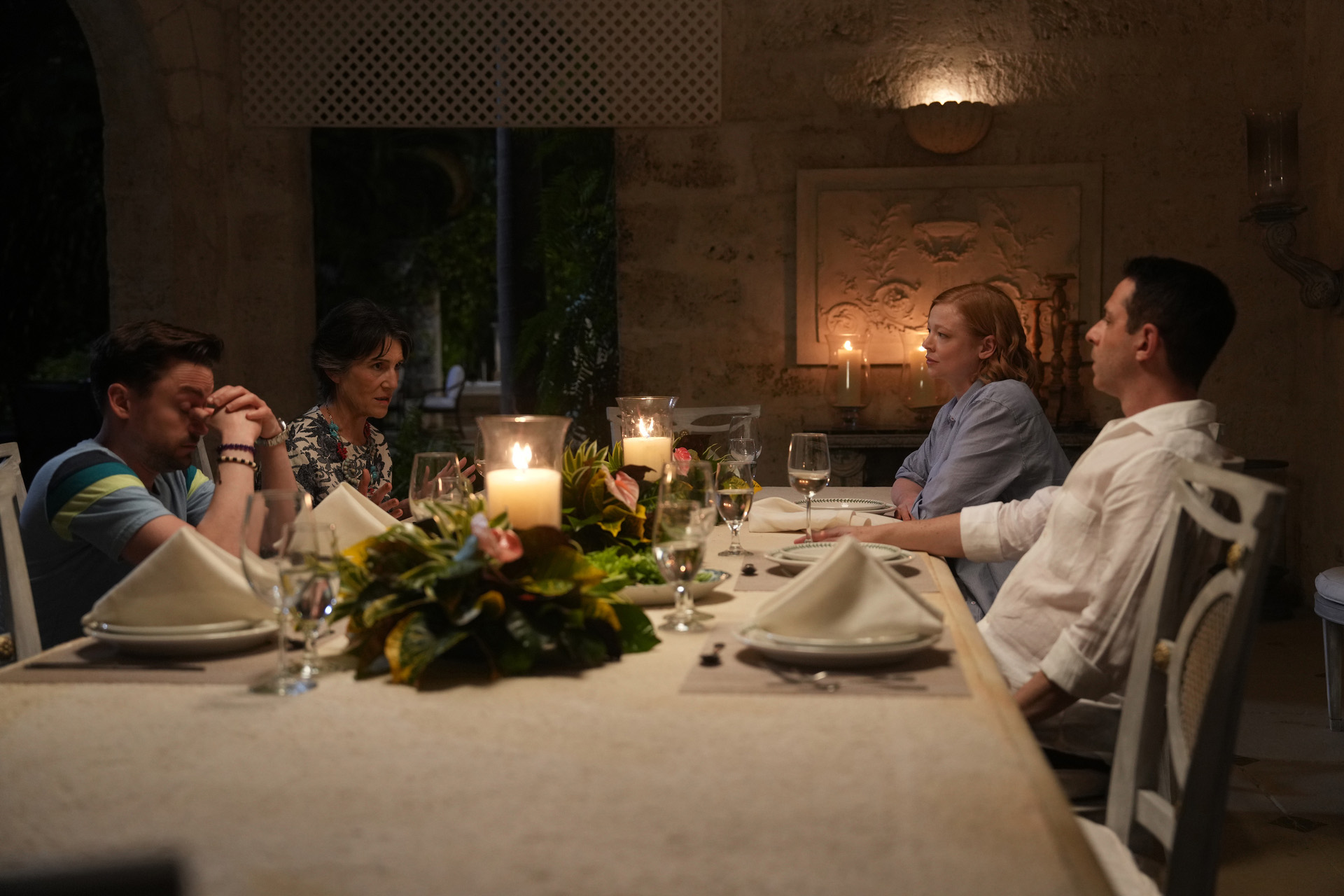
Kieran Culkin, Harriet Walter, Sarah Snook and Jeremy Strong in season four, episode 10 of Succession. © Sarah Shatz/HBO
Hi Harriet, how’s life going at the moment?
Life is OK, except I bust my foot two days ago. Well, I just sprained something in my foot, which is really annoying when today was a rather athletic shooting day. I just bent over and rolled over on my foot in the wrong position. Very undramatic. Luckily, I’ve got a double who can do all of the difficult bits! But otherwise life is fine.
Viewers are in luck: we can watch you on Succession, Silo and Ted Lasso right now! Let’s start with Succession – how does it feel to be part of such a huge franchise, and one that’s coming to a close?
It feels pretty extraordinary. I feel a bit like a very lucky gatecrasher, who got into the party but didn’t really deserve to. That sounds falsely modest. I’m loving being in it. It’s a brilliant community of people. I think when people know something’s good – and, long before it took off, I think everybody who was concerned knew that they were doing something quite special – it puts everybody in a pretty good mood. So then they become really nice to be with and the whole thing’s a very happy experience.
You play Lady Caroline Collingwood – can you describe her to any readers who are unfamiliar with Succession?
Lady Caroline Collingwood was Logan’s second wife, and is the mother of the three main children. She is someone who apparently breezes through life, cracking rather snidey jokes and having a rather aristocratic demeanor. But underneath, I think she uses that as a defense mechanism, because she’s actually as lost as everybody else is in the show. She hasn’t got life right any more than anybody else has.

Harriet Walter as Lady Caroline in season four, episode 10 of Succession. © Sarah Shatz/HBO
How do you get into character? How do you get into Caroline’s mind?
Well, it’s a combination. The writing suggests so much to you from the beginning. In the very first season, it was Shiv’s wedding, and the writers had me going around saying things like, ‘how long do you think this is going to last?’. She was going around to all the guests asking that. And then in her speech at the table, she says, ‘I’m saying I love you now, because God knows I might not be alive at your next wedding’. So she says these cutting jibes – she’s going in all the time. But, first of all, I think she’s got a very low boredom threshold; she wants to stir things up, because people are pretty dull. That’s her attitude. And, second of all, I think there’s a lot of past hurt in that family. You’ve only got to witness the way they hurt one another – the main characters you see all the time, and Logan – to be able to imagine what it would be like to be married to that man, and to be the mother of those children. And vice versa: they explain one another. I explain them, and they explain me. It’s quite easy for the audience to think, ‘Oh, she’s flitted in and she’s flitted out, and she’s very amusing’. But actually, I have to deal with the reality that I lived in that very poisonous atmosphere for a good 10 years at least. She can give as good as she gets. And she’s no saint. But I think a lot of her behavior comes out of defensiveness.
Are you happy with how the series ended?
I don’t think anybody’s going to say that it’s satisfying – like it’s rounded things off. I thought episode eight was unbelievably good. I thought episode nine was even better. And so you’re going, ‘Episode 10, where can they take it?’ They set themselves such high stakes. And very much to Jesse Armstrong’s credit, and all the writers, they’ve been so bold. At the end of each season, you go, ‘How dare they? How can they do that? That’s so bold. You can’t do that!’ It won’t be quite that sort of ending, but it will be very true to itself. It won’t let you down and you won’t go, ‘Oh, come on!’ – which you sometimes do when you watch something through and you’ve committed a lot of watching hours over a couple of years. You watch something, and then it fizzles out in some rather disappointing or rather unbelievable ending. I’ve had that experience myself and you feel a bit cheated. Nobody’s going to feel cheated with this. But it’s not going to be fireworks and bombshells.
What is the cast dynamic like on set?
What’s brilliant is that, as I said before, when you know you’re in a hit, people relax. They know that they don’t have to fight for their corner. They don’t have to fight for attention. They don’t have to worry about artistic choices that they might not agree with. I come in and out so seldomly, really, but every time I come back into it a year later, people are bonded even more. It’s not cosy-cosy, in that way. It’s just good natured. There’s a recognition that there are a lot of very different personalities who work in very different ways. But because it’s all going towards something we all know is a success, it gives you the freedom to just say, ‘this is how I’m doing things, so, you know, eat it up’. And I quite like that. Particularly the children, who bring very different qualities to the screen – yet you believe them as bonded together. I think that’s very brilliantly cast: they are different, but you believe that they’re bonded. They can clash, they can hug, they can spin off against one another, and come back together again; they have their individual lives, but also absolutely understand one another.
You’ve also got Silo on AppleTV right now, which we’re loving. What was that like to film?
My character Walker stays in her workshop all the time. There was a sort of claustrophobia within the claustrophobia, if you see what I mean. You’re underground anyway, and she’s really near the bottom of that underground, because she’s in the ‘down deep’ in mechanical. And she doesn’t move out of her room. She’s agoraphobic, really. She’s got reasons why she can’t go outside the door. And so people come to her, and all her society and all her knowledge of the world beyond her door comes through people coming in to get things fixed, or to ask for advice. She’s a nice little bird, I like her. But she’s got a handful of problems psychologically. So what it was like to film, it was rather extraordinary, because I did episode after episode, but I was always in the same set. Quite often, when you’re filming, your memory of shooting is tied up with a location. But for this, I can’t really distinguish between this episode and that episode, because it all took place in the same room. The set is brilliantly compiled by the art department. It’s like a garage mechanic’s nightmare. It’s just machinery and tools and gadgets, and unexplained bits and bobs, and shelves, and, you know, it’s crazy. But it’s her world that she’s created over 25 years. And she knows where everything is.
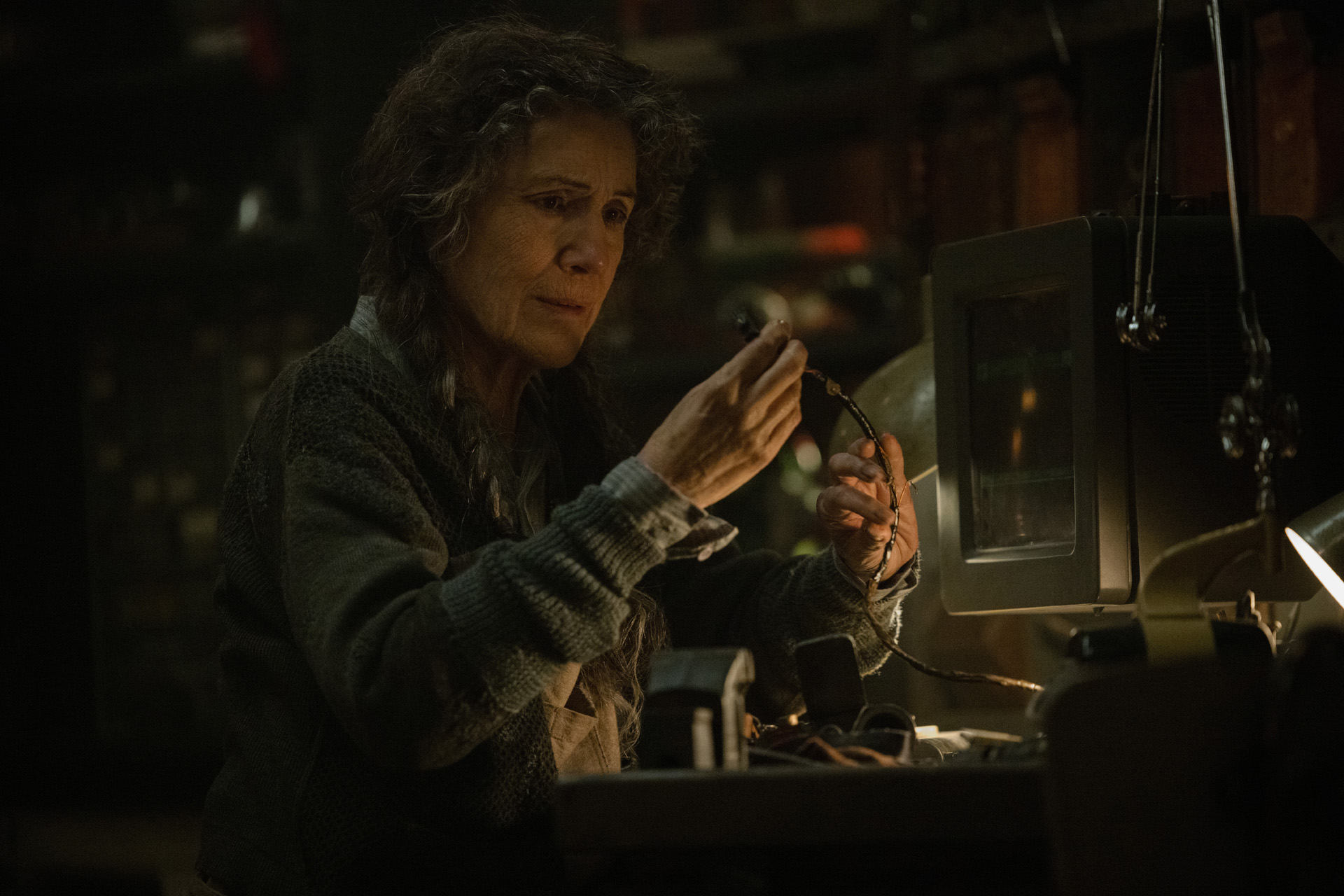
Harriet Walter in Silo, now streaming on Apple TV+.
Is it all filmed in studios? It’s such a surreal space…
It’s all in one studio. It’s a remarkable achievement, really. I saw a couple of episodes on the big screen, and I thought, really, this should be seen on a big screen in a way. It’s like watching Alien or something, you know – this extraordinary world they’ve created. And the action is quite speedy; there’s something going on all the time. It’s quite urgent from the very kickoff. And I find that great.
It’s about a society living underground after Earth became uninhabitable, but can you give any unfamiliar readers a quick introduction to the show?
Well it’s a metaphor, really, isn’t it? For the world we all live in. We behave along certain guidelines and rules of society. They’ve got this thing called ‘the pact’, which is how that society is organised – you have to stick with the pact. It’s built on hierarchy: it is very hierarchical, literally, because the people living up at the top are in charge of all the people right through to the depths, but the whole silo wouldn’t function without the workers at the bottom. The whole thing would die if we didn’t keep the engine going [at the bottom].
So there’s a metaphor for society, but we’re basically all living underground in a silo because the outside world has become so contaminated that human beings can’t live in it anymore. That’s the story we’ve been told. And we’re not sure whether that’s true – I mean, ‘we’ the viewer, we don’t really know for sure. We start to trust less and less in the information these people have given about their world. I think that’s a very good metaphor for how we’re all living now. We take a lot on trust; you have to because, unless you personally go into a lab and know how to create a cure for cancer or whatever, you submit yourself to the experts, because you can’t know everything as a layperson. It’s the same there, but it’s much more divided. You don’t travel across lateral countries, you travel up and down the silo to go and visit people at another level. It’s much more contained: you can control these people, and this is as though it was only one country. There are only 10,000 human beings. It’s like Noah’s ark. It’s fascinating.
It’s very unnerving.
It is. I sort of think, ‘what would I be without fresh air and trees and green leaves and the sea?’. It makes me really love those things now. I get up in the morning and go out for a walk and breathe the fresh air; it makes you really aware of the pleasure of just breathing air. And how fragile the planet is. This is not such a huge fiction.
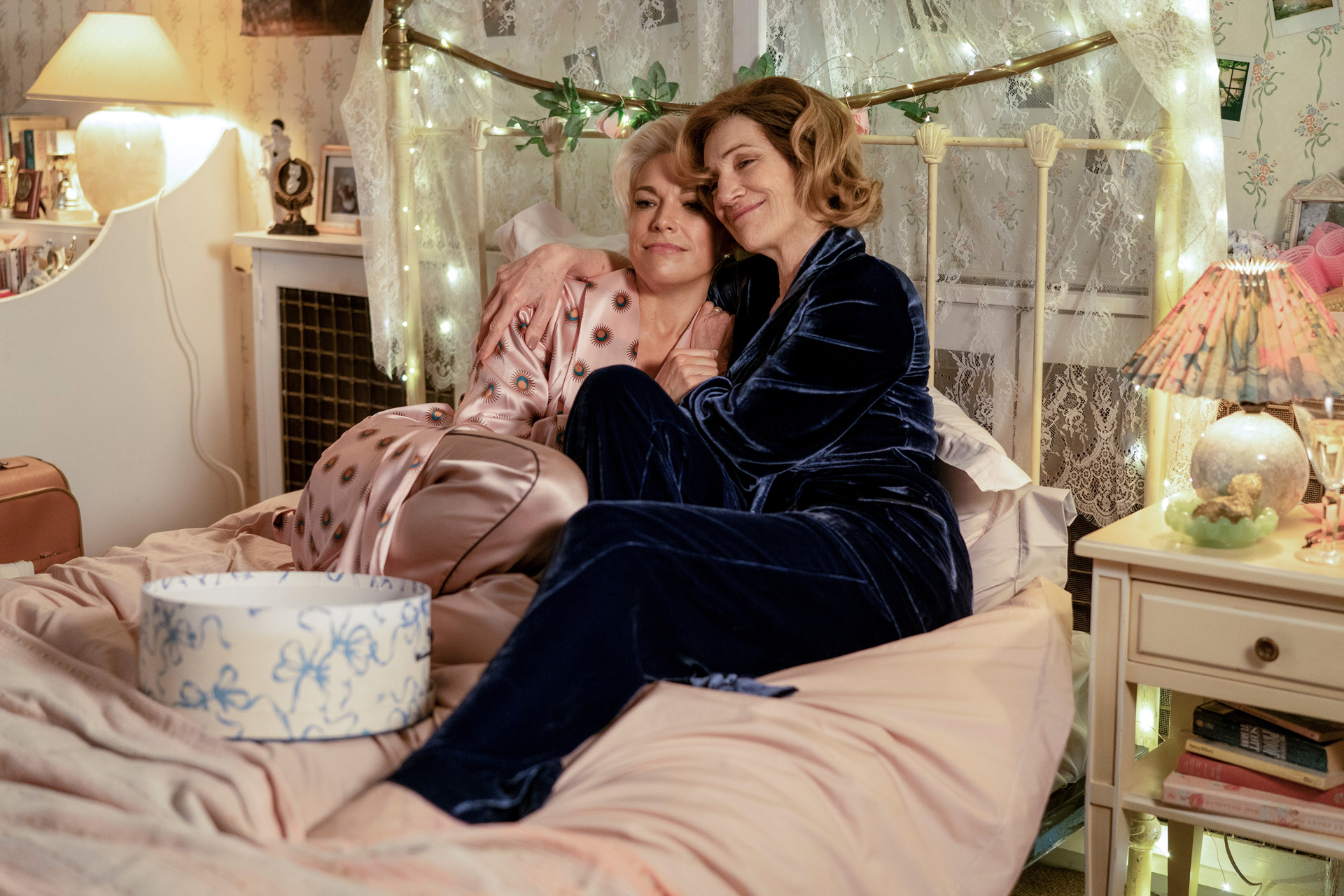
Hannah Waddingham and Harriet Walter in Ted Lasso season two, now streaming on Apple TV+.
And, on a lighter note, you’ve also got Ted Lasso – what has that been like to be a part of?
Well, again, it’s a fleeting visit. I have to say with all these things that – apart from Silo, which I do have much more of a presence in – I actually find myself getting jealous and going, ‘I wish I was in this more!’. Because, just flitting in and out, you get this little taste of what fun it is. And how lovely the people are. I know people say that about every job. But I mean, for a start, I do think most actors are quite good at bonding and getting on with one another. So when people do say, ‘it’s a lovely company,’ I think they really mean it. With Ted Lasso, the spirit of the show is it’s everything that Succession isn’t: it’s saying that people are basically OK, or trying to be OK, and when they’re not, they can laugh at themselves. It’s wonderful how Jason Sudeikis treads that line; it’s not sweet-sweet, it’s not unrealistically happy, it’s got a lot of dark things going on somewhere, but they’re handleable and they’re human. They’re not there to up the ante or make it more dramatic or something, they’re just part of the lives of those people. I really love going in there just for a little spot now and then.
Do you get to spend much time at home amid so many projects?
Yes, I do. I get quite a lot of days off and it’s quite a good balance at the moment. I have enough time to do other things – just about. But, funnily enough, when you’re known to be free, a lot of people come in and say, ‘Well, can you do this? And can you do that?’ So I have to fight for my space. I have to say ‘no, I’d rather do something else’, and just read a book with my feet up on the sofa or something.
What do you enjoy doing to find balance in your life?
I love, as I said, being outdoors. I enjoy, even though I’m no good at it, playing the piano. I probably do that most days. I’m going to sound naff here, but I love crosswords, jigsaws, acrostics, any mind puzzles. I love reading. I love writing. Seeing my mates. Going to the cinema, and the theatre. That’s it.
What are you reading at the moment?
I’m actually reading a book by a friend of mine’s husband. He’s called Hugh Brody, and he’s a wonderful anthropologist. He’s written a book that’s both anthropological and personal called Landscapes of Silence.
Top piece of advice for readers on how to live life a little bit better?
Golly, that’s so difficult, because it depends how old you are, really. But perspective, really, I think, is the advice I would give. Keep yourself in perspective, don’t think you’re too unimportant, and don’t think you’re too important. And try to realise that, just as you’re the centre of your life, everybody you sit next to on the tube or come across at any point is the centre of their life. And if you feel something, they probably do as well. It’s very easy to forget that, that’s all. And that applies to every encounter I can think of. You’re bound to feel you’re the centre of the universe – we get that from being a baby onwards. And just adjusting to the fact that you’re not is really a life’s work. That everybody is the centre of their universe, and you’re not more important or less important than anybody else.
Watch Harriet Walter in Succession on Sky, and Ted Lasso and Silo on Apple TV+.
Featured image: Harriet Walter in season four, episode 10 of Succession. © Sarah Shatz/HBO

